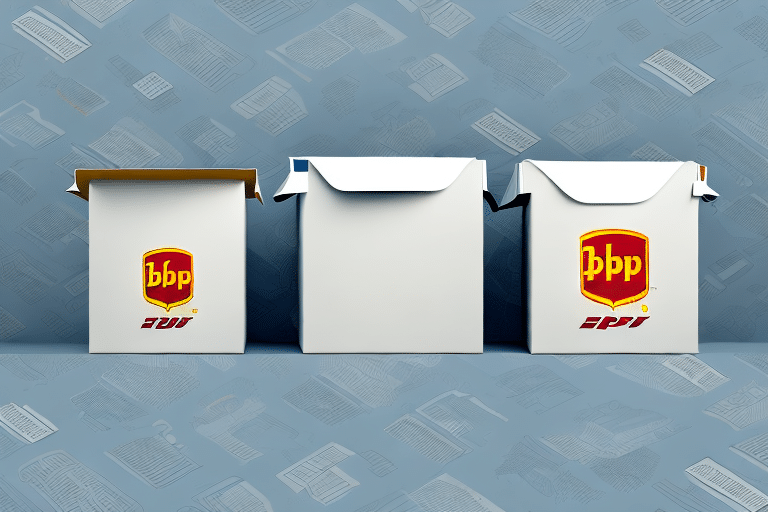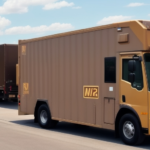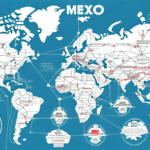Comparing UPS and DHL: Which Shipping Service Is Right for You?
When it comes to shipping services, two of the most prominent names are UPS and DHL. Both companies offer reliable and efficient shipping options, but which one is best suited for your needs? This comprehensive comparison examines their shipping options, rates, transit times, tracking capabilities, customer service, international shipping expertise, insurance options, and packaging requirements. By the end, you'll have the insights needed to make an informed decision.
Introduction to UPS and DHL
UPS (United Parcel Service) and DHL (Dalsey, Hillblom, and Lynn) are two of the leading shipping companies globally. UPS, headquartered in the United States, boasts over a century of experience and operates in more than 220 countries and territories. It has an extensive network of delivery vehicles and aircraft, ensuring broad and efficient coverage.
DHL, based in Germany and established in 1969, is renowned for its comprehensive logistics services. It also operates in over 220 countries and territories, with a strong emphasis on international shipping and logistics solutions.
Both UPS and DHL offer a variety of shipping options, including express, ground, and freight services. They provide robust tracking systems that allow customers to monitor their shipments in real-time. Additionally, both companies are committed to sustainability, implementing practices such as using alternative fuels and reducing carbon emissions.
Shipping Options Offered by UPS and DHL
UPS Shipping Options
- UPS Ground: Cost-effective shipping within the United States.
- UPS Next Day Air: Guaranteed next-business-day delivery.
- UPS 2nd Day Air: Delivery within two business days.
- UPS Worldwide Express: Fast international shipping with delivery typically within 1-3 business days.
- UPS Freight: Suitable for heavy or bulky items, offering reliable freight shipping services.
- UPS My Choice: Provides flexible delivery options, including rescheduling and rerouting packages.
DHL Shipping Options
- DHL Express Worldwide: International express delivery with tracking and customs clearance.
- DHL Same Day: Urgent deliveries within the same day in selected locations.
- DHL Medical Express: Specialized shipping for medical and pharmaceutical products.
- DHL Global Forwarding: Comprehensive air and ocean freight solutions.
Both companies offer specialized services tailored to specific needs, such as handling fragile items or perishable goods. Their extensive range ensures that businesses and individuals can find solutions that match their shipping requirements.
Shipping Rates Comparison of UPS and DHL
Shipping rates between UPS and DHL vary based on factors such as destination, weight, dimensions, and delivery speed. Generally, UPS tends to be slightly more expensive for domestic shipments within the United States, while DHL often offers more competitive rates for international shipping.
For example, according to the [2023 Shipping Rates Report](https://www.shiphype.com/shipping-analytics/), UPS's average cost for a domestic package weighing 10 lbs is approximately $15, whereas DHL offers a similar international service starting around $20. However, prices can fluctuate based on specific shipment details.
Both UPS and DHL provide discounts for bulk or frequent shipments. UPS offers savings through its UPS Volume Pricing, while DHL provides discounted rates for businesses through its DHL Business Solutions. It's advisable to compare rates and consider available discounts to optimize your shipping budget.
Transit Time Comparison of UPS and DHL
UPS and DHL offer competitive transit times for both domestic and international shipments. For domestic shipments within the United States, UPS's Next Day Air and 2nd Day Air services guarantee delivery within one and two business days, respectively.
On the international front, DHL Express Worldwide typically promises delivery within 1-4 business days, depending on the destination. In some cases, DHL's specialized services like Same Day can offer even faster delivery for urgent shipments.
Both companies leverage extensive global networks to ensure timely deliveries. However, transit times can be affected by factors such as customs processing, weather conditions, and local logistics infrastructure.
According to the [2023 Global Logistics Performance Index](https://lpi.worldbank.org/), both UPS and DHL are top performers in transit times, especially in regions with well-developed infrastructure.
Tracking Options Offered by UPS and DHL
Both UPS and DHL provide advanced tracking systems that allow customers to monitor their shipments in real-time. UPS Tracking offers detailed updates, including estimated delivery times, and integrates with their mobile app for on-the-go monitoring.
DHL Tracking similarly provides comprehensive tracking information, including delivery estimates and the ability to customize delivery preferences such as changing the delivery address or rescheduling delivery times.
Both companies also offer notifications via email and SMS, ensuring that customers stay informed about their shipments at every stage.
- UPS My Choice: Enhances tracking by allowing users to manage deliveries, set delivery alerts, and reroute packages.
- DHL Express Mobile App: Facilitates tracking and managing shipments directly from mobile devices.
Customer Service Comparison of UPS and DHL
Customer service is a critical aspect of shipping reliability. UPS is often praised for its responsive customer support, offering a 24/7 support line and various channels for assistance, including phone, email, and online chat.
DHL has historically faced criticism for its customer service, particularly concerning international shipments. However, recent investments in technology and training have significantly improved their service quality.
According to the [2023 JD Power Customer Service Rankings](https://www.jdpower.com/business/ratings/best-shipping-companies), UPS ranks higher than DHL in terms of customer satisfaction, but DHL has shown notable improvements in recent evaluations.
- UPS: Known for prompt resolution of issues and extensive support resources.
- DHL: Enhanced support options and a proactive approach to customer feedback have strengthened their service reputation.
International Shipping Options Provided by UPS and DHL
Both UPS and DHL excel in international shipping, providing services to over 220 countries and territories worldwide. DHL is particularly renowned for its international logistics expertise, offering specialized services such as DHL Global Forwarding for air and ocean freight solutions.
UPS offers similar international services, including UPS Worldwide Express, which guarantees delivery in 1-3 business days for urgent international shipments.
In 2023, DHL handled over 1.5 million international shipments daily, leveraging its global network to ensure efficient customs clearance and compliance, according to the [International Air Transport Association (IATA)](https://www.iata.org/en/pressroom/press-releases/2023/). UPS, with its extensive ground and air networks, ensures reliable international deliveries with real-time tracking and comprehensive logistics support.
Insurance Options Provided by UPS and DHL
Protecting shipments against loss or damage is essential. Both UPS and DHL offer shipment insurance options, although their coverage limits differ.
- UPS: Provides a maximum liability coverage of $100 for standard shipments, with the option to purchase additional insurance for higher-value items.
- DHL: Offers a maximum liability coverage of $25 for standard shipments, also allowing customers to purchase supplemental insurance as needed.
The cost of insurance varies based on the shipment's value and the level of coverage required. Both companies offer online calculators to help customers estimate insurance costs.
When filing a claim, UPS requires customers to submit documentation within 60 days of the shipment date, while DHL has a 30-day window. Proper documentation, such as photos and receipts, is necessary for claim processing.
For high-value shipments, considering third-party insurance providers can offer more comprehensive coverage options.
Packaging Requirements for Shipments with UPS and DHL
Proper packaging is crucial to ensure the safe and secure transport of goods. Both UPS and DHL have specific packaging guidelines to minimize the risk of damage during transit.
UPS Packaging Guidelines
- Use sturdy, corrugated boxes suitable for the weight and dimensions of the items.
- Ensure that fragile items are well-padded with materials such as bubble wrap or packing peanuts.
- For hazardous materials, follow UPS's hazardous materials shipping guidelines, which include proper labeling and documentation.
DHL Packaging Guidelines
- Adhere to the DHL Express International packaging standards, which specify the use of high-quality packaging materials and clear labeling.
- Use tamper-evident seals and ensure that packages are securely closed.
- For perishable items, utilize insulated packaging and cooling materials as required.
Both companies offer packaging services for an additional fee, providing convenience for those unsure about how to package their items correctly.
Additionally, both UPS and DHL have weight and size restrictions:
- UPS: Maximum weight of 150 pounds per package and a maximum size of 165 inches in length and girth combined.
- DHL: Maximum weight of 660 pounds per package and a maximum size of 118 inches in length and girth combined.
Adhering to these restrictions is essential to avoid delays, damage, and additional fees.
How to Choose Between UPS and DHL: Factors to Consider
Deciding between UPS and DHL depends on various factors tailored to your specific shipping needs:
- Pricing: Compare shipping rates based on the nature and frequency of your shipments.
- Shipping Options: Assess the range of services each company offers to match your delivery requirements.
- Transit Times: Determine the urgency of your shipments and choose a provider that meets your deadlines.
- Tracking Capabilities: Ensure that the shipping company offers reliable and comprehensive tracking systems.
- Customer Service: Consider the quality and responsiveness of customer support.
- International Logistics: If you frequently ship internationally, evaluate each company's global network and expertise.
- Packaging and Insurance: Review packaging services and insurance options to safeguard your shipments.
Additionally, consider the geographical regions where you ship most frequently. UPS has a more extensive network in North America, making it a preferred choice for domestic shipments within the United States. In contrast, DHL has a stronger presence in Europe and Asia, offering more efficient services in these regions.
Analyze your shipping volume, the types of goods you ship, and your budget to determine which carrier aligns best with your business needs.
Case Studies: Real-Life Examples of Businesses Using UPS vs. DHL for Shipping
Case Study 1: E-Commerce Retailer
An online retailer specializing in clothing and accessories opted for UPS due to its reliable delivery times and comprehensive tracking services. Their choice was influenced by UPS's extensive North American network, which ensured timely deliveries across the United States. This reliability enhanced customer satisfaction and repeat business.
Case Study 2: Medical Equipment Manufacturer
A manufacturer of medical equipment chose DHL for its specialized handling and expertise in international logistics. DHL's Medical Express service provided secure and compliant transportation of sensitive and fragile equipment to global healthcare providers, ensuring that products arrived safely and on schedule.
Case Study 3: Global Technology Firm
A multinational technology company utilized both UPS and DHL to leverage their respective strengths. UPS was used for domestic shipments within the U.S. to benefit from its robust infrastructure, while DHL handled international shipments, taking advantage of its expertise in European and Asian markets. This hybrid approach optimized their shipping efficiency and cost-effectiveness.
Conclusion: Which Shipping Service Is Right for You?
Both UPS and DHL offer robust and reliable shipping solutions tailored to a variety of needs. Your choice between the two should be guided by factors such as pricing, shipping options, transit times, tracking capabilities, customer service quality, international logistics expertise, and specific business requirements.
If your primary focus is domestic shipping within North America, UPS may provide the most benefits with its extensive network and reliable services. Conversely, if your business involves significant international shipping, particularly in Europe and Asia, DHL might be the better option due to its specialized international logistics capabilities.
By carefully evaluating your shipping needs and comparing the strengths of each carrier, you can select the shipping service that best aligns with your business objectives and ensures the efficient delivery of your products.






















